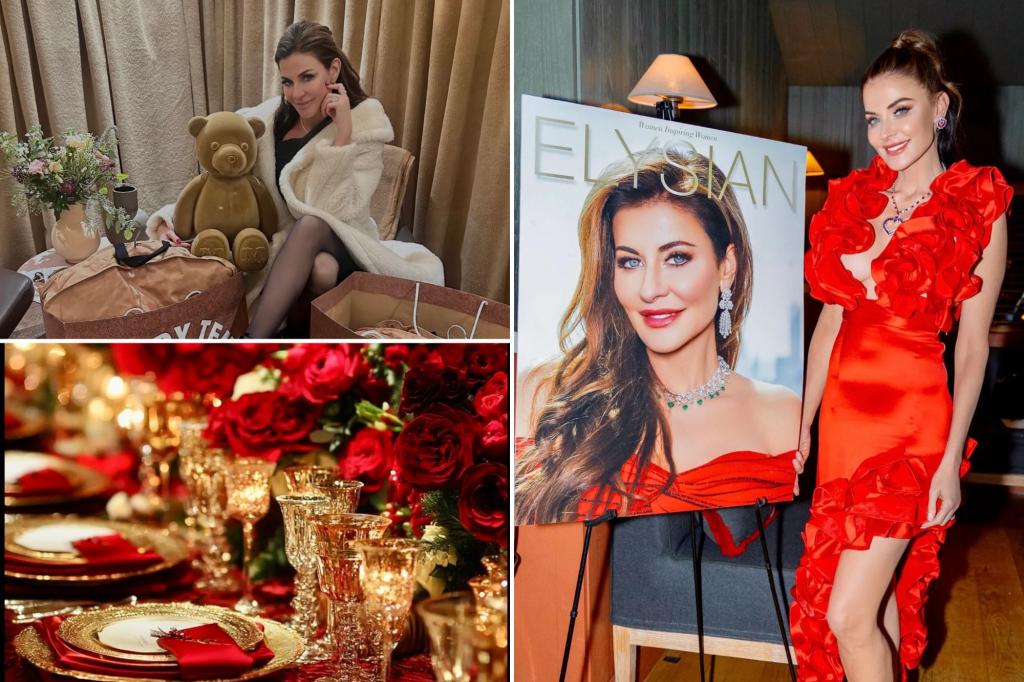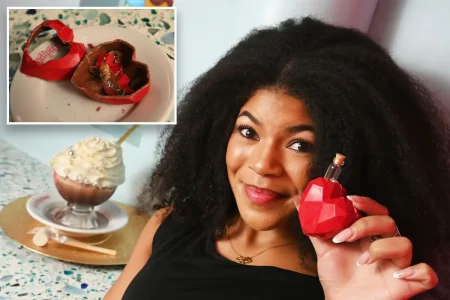Luxury Brands’ Extravagant Rewards for Elite Shoppers
In the glittering world of luxury retail, America’s most affluent shoppers receive far more than just exquisite products for their loyalty. Top brands like Gucci, Louis Vuitton, Fendi, and Prada have created elaborate reward systems for their highest-spending clients, offering experiences that money alone cannot buy. These exclusive perks range from courtside seats at Wimbledon and lavish dinners in royal palaces to personalized birthday celebrations and extravagant holiday gifts. Some luxury retailers will even transform a client’s home for special events. “There are many perks like being able to go to fashion shows and going on adventures that relate to the story of the brand,” explains Christos Garkinos, a 60-year-old Los Angeles-based luxury retail expert who runs the live-streamed fashion sales platform Covet by Christos. According to Garkinos, once you’re “in” with a premier luxury brand—which typically means spending at least $500,000 to well over $1 million annually with a single label—the invitations to international trips, exclusive dinners, and celebrity-studded events become constant. This focused attention makes perfect business sense: “One percent of luxury buyers sometimes account for up to 40% of someone’s business,” he notes. “So it’s important that you keep them happy.”
The relationship between ultra-wealthy shoppers and luxury brands has evolved into a symbiotic partnership that extends far beyond traditional retail transactions. Take philanthropist Amy Heart Green, for example, who divides her time between homes in New York City, the Hamptons, and Aspen. When Green received an award for her philanthropy work, Chopard organized an elegant dinner for her and 65 guests at Casa Tua in Aspen. “They had all their jewelry on display. They gave me this gorgeous pair of earrings. They paid for the entire dinner. And then they had these beautiful crystal candles and gift packages for all of the guests,” Green recalls. For Chopard, this celebration served a dual purpose: it honored a valued client while simultaneously introducing their brand to Green’s affluent social circle—a network filled with potential customers. Green, whose foundation The Green Vision raises funds for environmental causes and wildlife preservation, has built such strong relationships with luxury brands that she can call on them to decorate her homes for special occasions. “I’ve been doing this for a long time, and I shop with all these different brands,” she explains. “They know what I do and they are excited to be a part of it. I do things for them too. I’m always sending them great clients.”
The luxury retail landscape has undergone a significant transformation in recent years, moving away from traditional point-based loyalty programs toward more personalized, experience-driven rewards. “For a long time, retail loyalty programs were like, ‘You shop here, we give you rewards, and then you cash in your rewards.’ But I don’t think that gets people coming back to the store. It’s very impersonal. You just felt like you were being rewarded because of how much you spent. That’s not a true VIP experience,” explains Matt Shachter, a retail expert and VP of Marketing at Endear, a customer relationship management system that has partnered with brands like Reformation, Glossier, and Todd Snyder. Today’s affluent consumers crave more than just discounts or points—they seek recognition, exclusivity, and genuine connections with the brands they support. “Shoppers are looking for exclusivity. They want brands to recognize them as an individual, as a person,” Shachter notes. This shift toward hyper-specialized customer experiences has been facilitated by advanced data collection and analysis capabilities. Modern luxury retailers now have access to unprecedented amounts of customer information, including purchasing habits, birthdays, style preferences, social connections, travel patterns, and much more. “We can collect as much data as you want and use that constructively to build a unique experience,” Shachter adds.
This wealth of customer data has enabled luxury brands to craft increasingly creative and personalized experiences for their elite clientele. Garkinos has observed this trend firsthand: “You don’t just see clients being invited to fashion shows, you see bigger clients walking in shows from brands like Miu Miu.” The level of personalization extends to celebrating clients’ major life events, with brands hosting birthday parties and anniversary celebrations tailored specifically to individual shoppers. For his own top clients, Garkinos organizes extraordinary experiences in destinations like Dubai, Paris, and London—experiences that even wealthy clients might find difficult to arrange themselves. One recent example included a private VIP dinner at Kensington Palace, creating memories that transcend mere merchandise. However, Garkinos emphasizes that these rewards must never feel transactional: “It can’t be a pay-to-play proposition. You’re building community.”
The evolution of luxury retail rewards reflects broader changes in consumer psychology and the relationship between brands and their most valuable customers. While department stores once relied on point systems and discount tiers to encourage loyalty, today’s luxury brands understand that their elite clients—who already possess nearly unlimited purchasing power—value experiences, recognition, and exclusivity above all else. These customers don’t need discounts; they crave connections, personalized attention, and access to opportunities that wouldn’t be available to them otherwise. When properly executed, these experiential rewards create emotional bonds between brands and customers that transcend financial transactions. For luxury retailers, these investments yield significant returns: not only do they retain their most valuable clients, but they also gain access to those clients’ equally affluent social circles. The practice transforms traditional customer service into relationship cultivation, where both parties benefit in ways that extend far beyond the exchange of goods for money.
In this ultra-competitive luxury retail environment, brands continually strive to outdo each other with increasingly extravagant and personalized rewards for their top-tier clients. The most successful luxury retailers understand that in a world where wealthy consumers can purchase virtually anything they desire, true luxury lies in offering the intangible: recognition, belonging, exclusivity, and unforgettable experiences. These brands no longer simply sell products; they curate lifestyles and foster communities among their elite clientele. As shopping patterns continue to evolve and customer expectations rise ever higher, luxury retailers that master the art of personalized relationship-building will likely maintain their competitive edge. The ultimate luxury, it seems, isn’t just about owning rare and beautiful things—it’s about being recognized as rare and valuable yourself, deserving of experiences that exist beyond the reach of ordinary wealth. For America’s most affluent shoppers, spending millions with their favorite brands doesn’t just fill their closets with exquisite merchandise; it opens doors to a world of privileged access and personalized attention that represents the new frontier of luxury.














